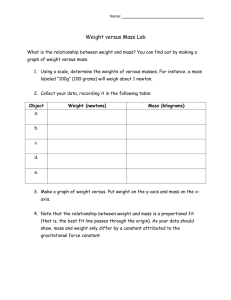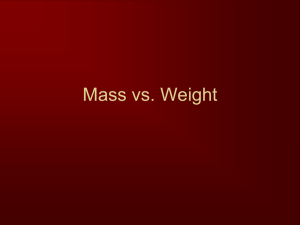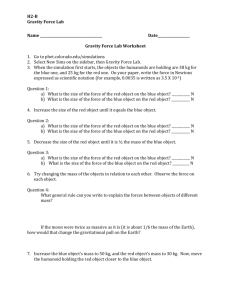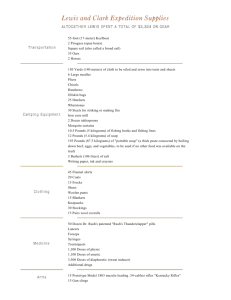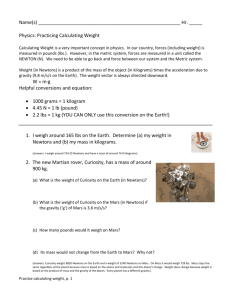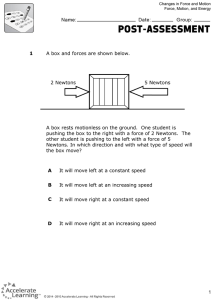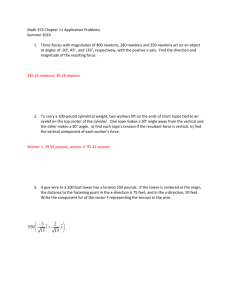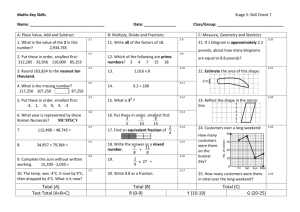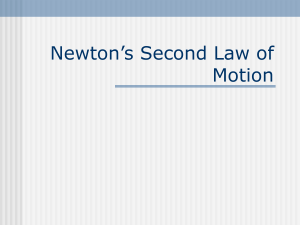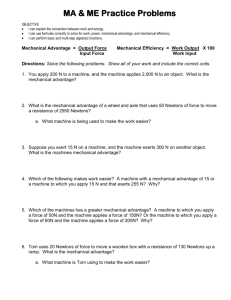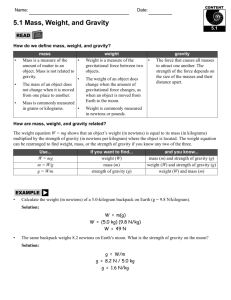Skill Sheet 6.1 Mass and Weight
advertisement
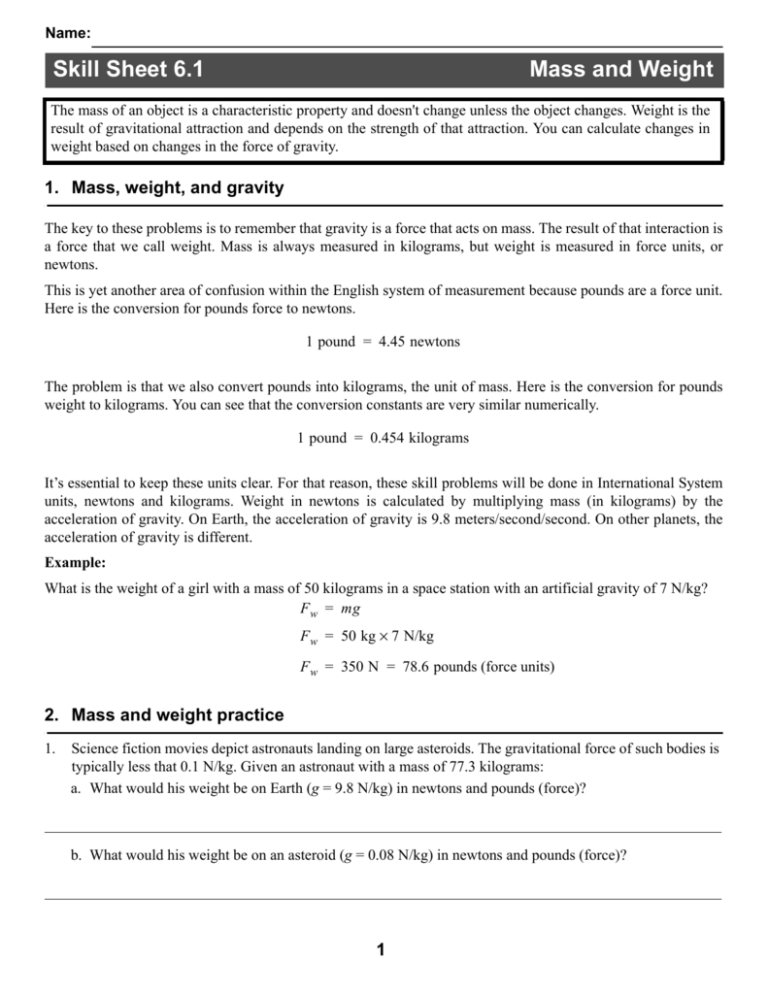
Name: Skill Sheet 6.1 Mass and Weight The mass of an object is a characteristic property and doesn't change unless the object changes. Weight is the result of gravitational attraction and depends on the strength of that attraction. You can calculate changes in weight based on changes in the force of gravity. 1. Mass, weight, and gravity The key to these problems is to remember that gravity is a force that acts on mass. The result of that interaction is a force that we call weight. Mass is always measured in kilograms, but weight is measured in force units, or newtons. This is yet another area of confusion within the English system of measurement because pounds are a force unit. Here is the conversion for pounds force to newtons. 1 pound = 4.45 newtons The problem is that we also convert pounds into kilograms, the unit of mass. Here is the conversion for pounds weight to kilograms. You can see that the conversion constants are very similar numerically. 1 pound = 0.454 kilograms It’s essential to keep these units clear. For that reason, these skill problems will be done in International System units, newtons and kilograms. Weight in newtons is calculated by multiplying mass (in kilograms) by the acceleration of gravity. On Earth, the acceleration of gravity is 9.8 meters/second/second. On other planets, the acceleration of gravity is different. Example: What is the weight of a girl with a mass of 50 kilograms in a space station with an artificial gravity of 7 N/kg? F w = mg F w = 50 kg × 7 N/kg F w = 350 N = 78.6 pounds (force units) 2. Mass and weight practice 1. Science fiction movies depict astronauts landing on large asteroids. The gravitational force of such bodies is typically less that 0.1 N/kg. Given an astronaut with a mass of 77.3 kilograms: a. What would his weight be on Earth (g = 9.8 N/kg) in newtons and pounds (force)? b. What would his weight be on an asteroid (g = 0.08 N/kg) in newtons and pounds (force)? 1 Skill Sheet 6.1 Mass and Weight 2. If you could embark on Jules Verne’s Journey to the Center of the Earth, you would discover that the force of gravity would at first increase, as you got closer to the main mass of Earth. But then it would decrease as your progress left more mass behind you and less in front of you. Imagine now that you are very close to the center of Earth and the force of gravity has decreased to 0.001 N/kg. What would you weigh in newtons and pounds (force) if your mass were 52.0 kilograms? 3. You are a typical young male with a mass of 68.4 kilograms. On Earth, you weigh 670 newtons, or 150.5 pounds (force). If you could survive, what would you weigh on the other planets and the sun? Express your answer in newtons and pounds (force). Force of gravity Sun newtons 274.4 N/kg Mercury 3.7 N/kg Venus 8.9 N/kg Mars 3.7 N/kg Saturn 10.4 N/kg Uranus 8.8 N/kg Neptune 10.7 N/kg Pluto 0.7 N/kg 2 pounds
